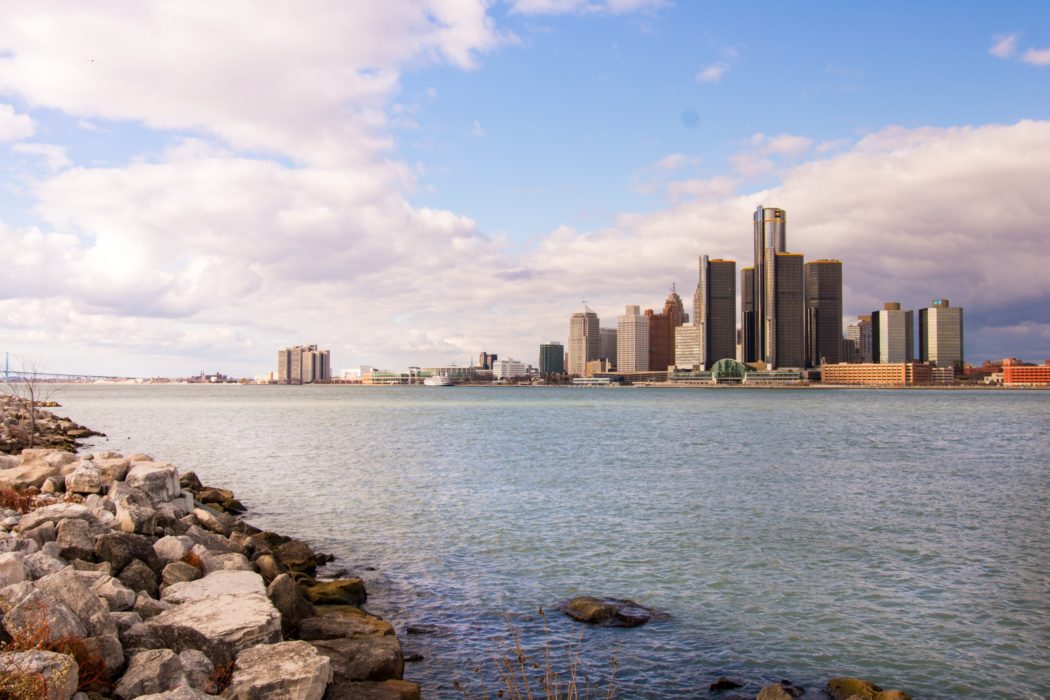
Michigan is ranked 42nd among the states according to how much it’s reopened from COVID-19 restrictions, according to one site tracking pandemic-related restrictions on a state-by-state basis.
However, Michigan isn’t necessarily an outlier among the states when it comes to particular COVID-related restrictions, according to a MIRS review of sites tracking restrictions, such as the Kaiser Family Foundation (KFF), the National Academy for State Health Policy (NASHP), The New York Times and USA Today.
The state openness rankings compiled by Virginia-based government relations firm Multistate is based on a score derived from 11 factors, ranging from whether state residents are under a stay-at-home order, to the extent of specific restrictions on industries like bars and restaurants and large crowd venues, for instance.
On a scale of 0 to 100, with zero the equivalent of a full lockdown, Michigan scored 49, which was tied with Colorado and New York, and ahead of states like Vermont, Oregon, Hawaii, Illinois, Washington, California and New Mexico, with the lowest score belonging to New Mexico with 28.
According to the other sites MIRS reviewed, Michigan is in the majority of states when it comes to requiring masks broadly. All but a handful of states mandate masks, according to this map from the NASHP.
Michigan is also in the majority of states in not having a stay-at-home order. A handful of states have something else in place, like a curfew or an advisory.
But there’s more of a patchwork approach to restrictions when it comes to industry-by-industry restrictions, according to the KFF tracker, which categorizes states on a number of social distancing actions like restaurant limitations, bar closures, large gathering bans, and more.
Michigan is in the plurality of states — 20 — that are in the “new service limits” category when it comes to restrictions on restaurants.
Three states have recently closed restaurants to indoor dining, while 17 are reopened to dine-in service and 10 are reopened but with capacity limits.
Michigan is set to join that latter group on Monday, when restaurants and bars can reopen to indoor service but with capacity limits and a curfew.
For large gathering regulations, Michigan is again in the plurality of 21 states that prohibit gatherings of 10 people or more. However, there are 20 states with no limits on gatherings.
Three states ban all gatherings, and another three states ban gatherings over 25 people, with four states banning gatherings larger than 50 people.
When it comes to bars, 20 states have reopened their bars, but Michigan and 16 other states have new service limits on those bars. The remaining 14 states have closed bars completely.
The New York Times tracker groups the states’ businesses into three categories: Mostly open, mixed and mostly closed. Michigan is among 16 states – including Puerto Rico – that are considered “mixed.” Most of the states are in the “mostly open” category.
USA Today also looks at restrictions by state more broadly, and groups the states by whether restrictions are easing, tightening, lifted, unchanged or if a reopening has been paused. Michigan is among 21 states — including Puerto Rico — classified as “restrictions easing.”
But Michigan, and most other states, largely lack restrictions on travel, even as new variants of COVID-19 are beginning to show up in America from other places.
The variant first detected in the United Kingdom has made its way to Michigan now, and a different variant originating from South Africa recently landed in the United States.
The NASHP map tracks “travel advisories,” and Michigan is one of 31 states with no advisory in place, while others do, including Ohio, the only Midwest state to have such a policy in place.
According to the NASHP, Ohio requires travelers from states reporting positive testing rates of 15% or more to self-quarantine for 14 days. On Dec. 2, 2020, Ohio added itself to its travel advisory list.
According to KFF, Michigan is one of 19 states with no mandatory requirement for quarantine for travelers, while another 16 have lifted that requirement.
Seven states require mandatory quarantine for all travelers, seven require it for certain states and two require it just for international travelers.
Michigan does stick out in one area, according to NASHP: The lack of a state of emergency in place due to COVID-19, as Michigan is the only state without a declared emergency in place.
The NASHP noted the Michigan Supreme Court’s decision from October wiped away the state of emergency that had been in place since near the beginning of the pandemic by declaring unconstitutional the law Gov. Gretchen Whitmer had relied on for carrying the emergency beyond the 28 days. For the order to continue, legislative approval would be needed.
Since the Supreme Court ruling, Whitmer hasn’t attempted to declare an emergency under the law that gives her 28 days until the Legislature needs to sign off. Instead, she deployed the Michigan Department of Health and Human Services to issue epidemic orders with many of the same restrictions that had been in the previous executive orders.
As for Friday’s COVID-19 numbers, Michigan reported 1,774 more cases and six deaths, for totals of 557,883 cases and 14,497 deaths. The six deaths Friday match the six deaths reported Wednesday, which was the first time since early October that the daily death toll had been that low.